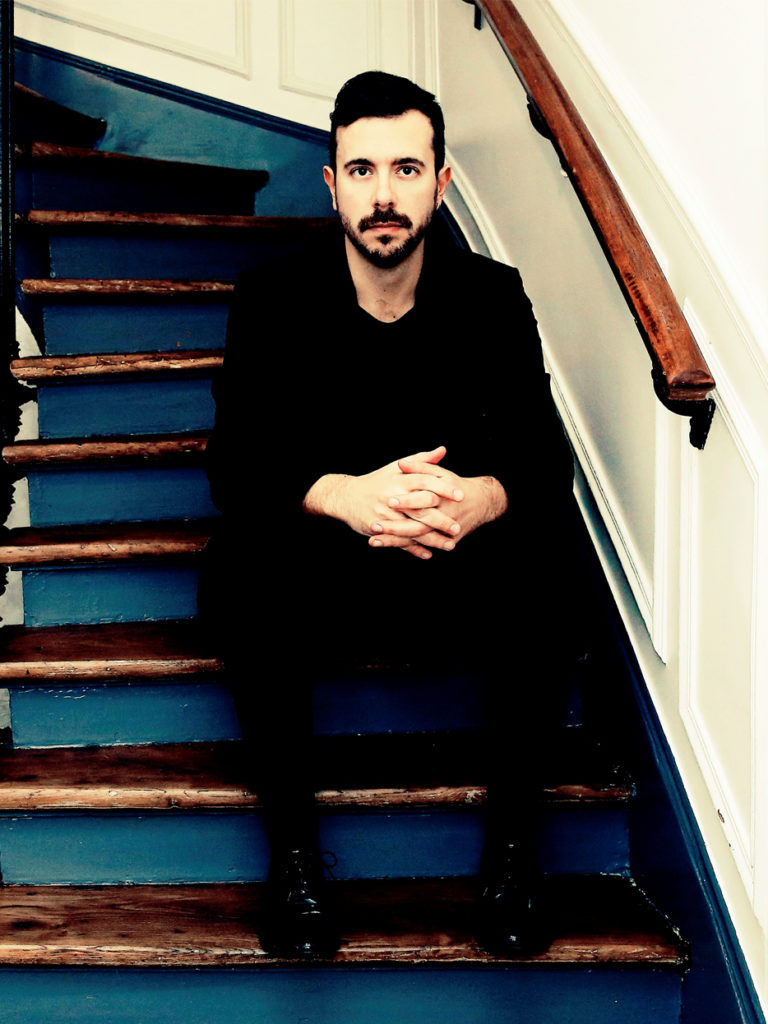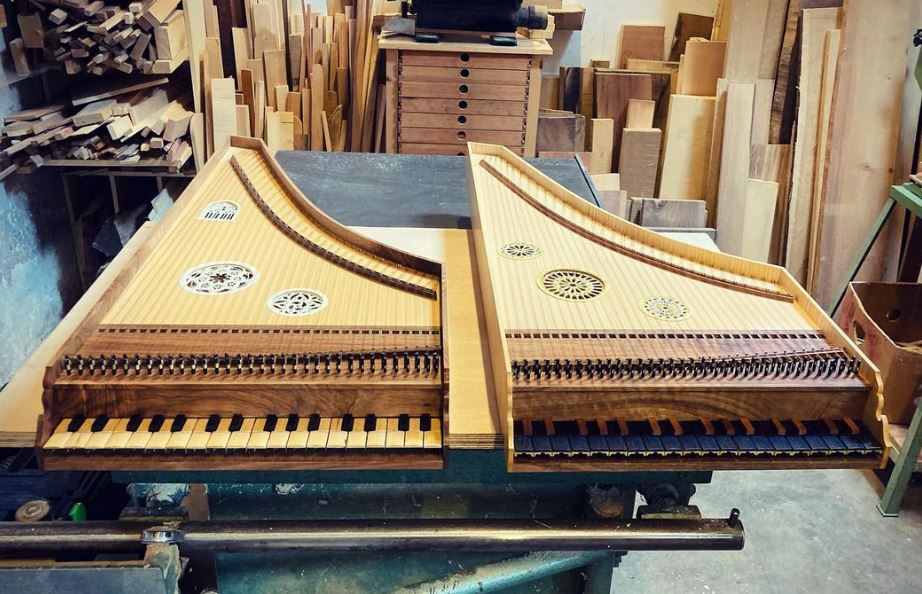Making his Tafelmusik debut this season is harpsichord soloist and guest director Francesco Corti, “a powerhouse of unbridled vivacity, exciting and excitable in equal measure” (BBC Music Magazine). Last month, Francesco officially assumed a new role as Music Director of the Drottningholm Royal Court Theatre in Stockholm. He regularly directs Les Musiciens du Louvre and is principal guest director of Il Pomo d’Oro. He is also a professor of harpsichord at the Schola Cantorum Basiliensis.
On March 3, 4 & 5, Francesco directs Tafelmusik in Bach’s Library. A fascinating exploration of music by J. S. Bach and those who inspired him, the program also includes works by Steffani, Hasse, and Zelenka.
We caught up with Francesco to chat about music, rare instruments, and artistic life.

How did music first enter your life?
I was born into a musical family, so music was always part of the day-to-day routine. It was a fundamental part of my upbringing. I cannot really remember a day of my childhood without music. I am very thankful for that.
When did you first discover your affinity for period keyboard instruments?
My father was an organist, and my mother is a pianist. It was quite natural for me to be drawn to different keyboard instruments from a very early age. I also studied cello, a bit of flute, and sang a lot, but keyboards were always most natural to me.
You juggle demanding roles as a concert soloist and director, faculty member at Scola Cantorum Basiliensis, principal guest conductor of Il Pomo d’Oro, and most recently, Music Director at Drottningholm Slottsteater in Sweden. What’s your secret for balancing all these activities?
I don’t really know! To be honest, I struggle sometimes keeping everything under reasonable control. But I’m very passionate about all these activities, and I chose each one of them. I very much enjoy alternating between different roles; it keeps me motivated in multiple aspects of music-making and also allows me to work with many different people. But I also know that I will keep doing what I do only as long as I find it humanly and artistically fulfilling. As soon as I have the feeling of falling into a kind of routine, it’s very hard to keep delivering at a high level.
What’s the rarest or most notable keyboard instrument you have played?
I was lucky enough to play many historical instruments that are preserved in museums, and often they are very inspiring instruments. Mozart’s piano in Salzburg, for example, is an extraordinary instrument. On the other hand, I very much enjoy playing “strange” instruments that I only rarely have the opportunity to perform on, like the celesta or the glockenspiel. I recently bought a hammered clavisimbalum (a late medieval keyboard), which I absolutely adore.

Where did the idea for “Bach’s Library” come from?
I have worked quite a lot on the music that J. S. Bach studied in his youth and the music by his contemporaries that he was interested in. I find the subject quite fascinating. We easily consider geniuses like Bach as extraordinary and isolated human beings, while they were normally very well aware not only of the past, but also of their present. The program mixes some of Bach’s instrumental pieces in different styles with earlier works and music by contemporaries that he followed as models (such as Steffani), or was in contact with (Zelenka and Hasse), thereby putting Bach’s pages “in context.”

You’ve recently conducted operas by Monteverdi, Handel, and Mozart. What does opera offer you, as an artist, that other genres might not?
Opera is a very unique form of art and conducting one is a very special journey. The whole musical and theatrical machine is so complex that no one really has full control of it while it happens. I find this very exiting (and sometimes frustrating!). There is room for incredible beauty, and at the same time, one knows that so many things can suddenly go bad. It’s a dangerous and energizing game to play. I’ve always loved opera, but being part of the whole process of the birth of a show is really amazing.
You’ve used words like “magical” and “dreamlike” to describe the historical Drottningholm theatre in Sweden, the only 18th-century venue in the world that still uses the original stage machinery. As the theatre’s new Music Director, what makes it so special for you?
It’s very hard to describe in words. You have to come and experience it in person! I love observing how people react when they enter the theatre for the first time: it’s a mix of surprise, excitement, and curiosity. It’s a childlike feeling, like entering a magic box where everything is possible. It reminds us very clearly of what theatre is about: it really forces the spectator to bend his belief of what reality is and does it in a totally instinctive way. That’s why Drottningholm is both a place of obvious historical interest, but also (and most importantly), a living and fully contemporary theatre.
You’ve performed at the Lamèque International Baroque Music Festival in New Brunswick. What was that experience like?
It was my first time in Canada and I loved it! Great place, great people, very warm audience: it was a very happy week!
If music had not been possible as a career, what would you most likely be doing now?
I would be very sad! If I really have to guess, I’d say astrophysicist.
What are the upcoming projects that you are most excited about?
This year I’ll conduct a tour of Handel’s Tolomeo with Il Pomo d’Oro and countertenor Jakub Orliński. It’s a rarely performed but very beautiful opera. Our next production in Drottningholm will be Fairy Queen by Purcell, one of my very favorite pieces of all time. I have some concerts with Freiburger Barock and with The English Concert that are very promising, and I also look forward to coming back to Canada and the USA in June. My next solo album, “Frescobaldi and the South” will be released just before the summer on the Arcana label!
Details are available on my website, francescocorti.com.
